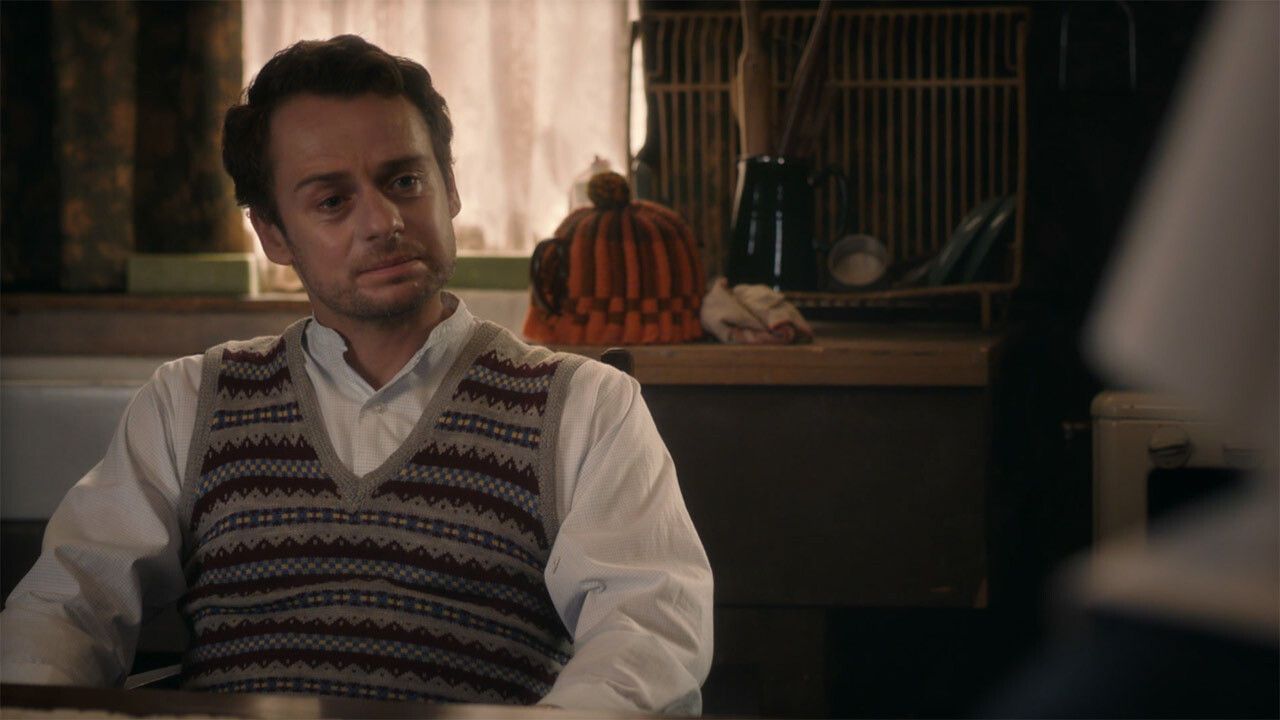“A birth begins a baby’s life; but, it transforms a mother’s. Forever after she will say: “it happened at that time, it took that long, it hurt that much.” The event is unique but the experience universal. She is one more woman among uncounted others …. Every one profoundly different; every one the same.”
Episode four really touched me and I want to focus my blog on Mr. Samuel Rosen. As a Modern Day Midwife I was very moved by this storyline and feel the relevancy as we currently witness the unprovoked attack from Russia on Ukraine. Mr. Rosen wore the scares from war, terror, death and so much pain and loss. The retelling of his experiences in the concentration camp at the age of 13 and the details of witnessing his mother and little brother turning to the left as he and his father turned to the right and then their subsequent death in the gas chamber left me feeling numb. And then he states that was Day One.
We flash forward to current times with exposures to the images of cities being destroyed and bombed. The bombing of a train station as people try to evacuate. The recent bombing of a maternity hospital in the city of Mariupol while pregnant women cradle their abdomens with blood stained clothes and fearful but stoic faces. It was so difficult to hear of the woman that was shown subsequently dying along with her unborn child.
I was surprised to learn that there are currently approximately 40 ongoing wars and conflicts globally. Most of the conflicts were in the Middle East, North West Asia, and Sub-Saharan Africa (World Atlas). I read that the longest war recorded was Reconquista which spanned 781 years. That war started in 711 and ended in 1492. And the country that has gone to war the most over the centuries is Spain with 300 wars.
War takes a very difficult toll on everyone but especially women of reproductive age. Stress, rape, violence and the impacts can be seen in complications along with maternal mortality rates that increase. Conflict causes so much injury, illness, breakdown in the infrastructures and disruptions in multiple arenas for care that range from preventive, acute and chronic care. These situations will have a profound effect on society and the impacts go beyond population displacement but include immediate breakdowns to health services, education, food and supply constraints, and economic devastation. Harms to health may be felt long term during an individual’s life span; however, adverse effects may continue through intergenerational biological mechanisms.
We are learning so much about epigenetic modifications to DNA expression. This information has emerged as a key biological mechanism which contributes to this intergenerational transmission and impacts will be felt in our future generations and children. We do not live in a bubble, and what our ancestors experienced within their environments and what our mothers are currently being exposed to impacts current and future life courses. Many exposures during development are mediated by maternal phenotype and reflect stresses to which mothers were originally exposed. An organism's phenotype results from two basic factors: the expression of an organism's genetic code (or its genotype) and the influence of environmental factors. We know that maternal physiology and behavior can buffer their offspring against some stressors; however, that buffering is only partial for as the extreme stress ends the effects of this stress may not!
The stress level in pregnant women causes changes in the hypothalamic-pituitary-adrenal (HPA) axis. This may lead to the occurrence of post-traumatic stress disorder (PTSD). This exposure to massive stress during pregnancy has been associated with epigenetic programming of the HPA axis in utero, leading to varied ramifications but one is an increased susceptibility to mental illness in the next generation.
There are many issues with conflict but those that really stand out are immediate violence, challenges to mental health, infections, and food supply issues with subsequent malnutrition. We see increases in violence against women during times of conflict through heinous targeted acts. Acts such as rape, domestic or intimate-partner violence, trafficking and prostitution. Often this violence is an intentional strategy of domination. An example of impacts from violence against pregnant women is an increase in stillbirths, perinatal morbidity and mortality, congenital malformations, premature births, sexually transmitted diseases.
We know there is deep and lasting pain from wars – yet they occur. Pregnant and breastfeeding women are already recognized as a priority group for humanitarian health programs but we still have much to do with integration of these programs and making sure there are adequate resources to aid those in need.
It is hard to witness the fear of countries as they seem to be frozen by thoughts of a breakdown to a potential World War and the looming threats of nuclear aggression. But, we do witness countries helping and individual people helping. The baby carriages left on the train station platforms from the Polish mothers were arms stretched out. It was such a strong visual impact to see what the other women and people were communicating. One of hope and one of openness to be that soft place to land as these women and children face the unknown.
“For things that mean the most to us are never ours alone. We walk always in the footsteps of the souls who went before. Our joy is the joy they felt. Our tears the tears they cried. The solaced hands pass living ones and their touch is holy. Honor the things that are not new. Cherish the treasures we inherit and listen for the ghosts of our shared and precious past. We have not always been as we are now and one day we will be the people in the shadows beyond all else we are the magic we pass down, the beats of love that repeat and echo beyond us into a future we cannot always see.”
World Atlas. Longest wars in human history. https://www.worldatlas.com/articles/longest-wars-in-human-history.html
